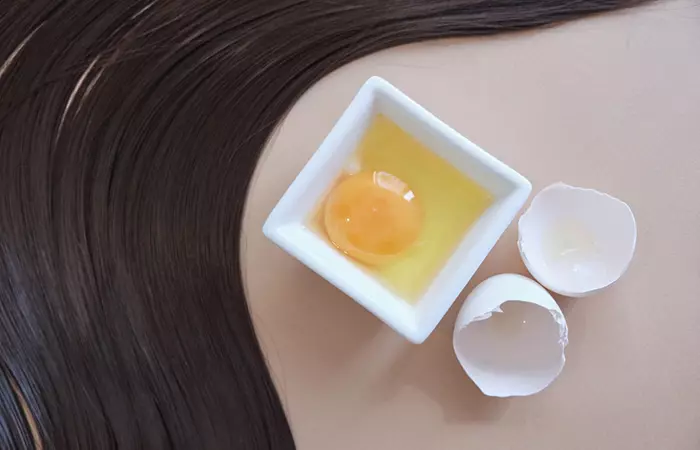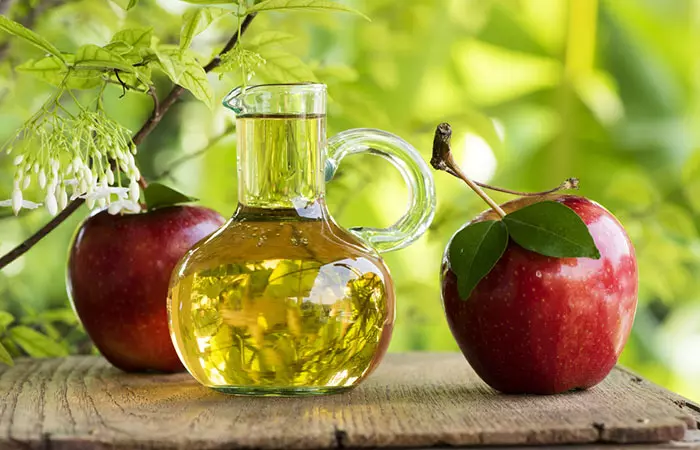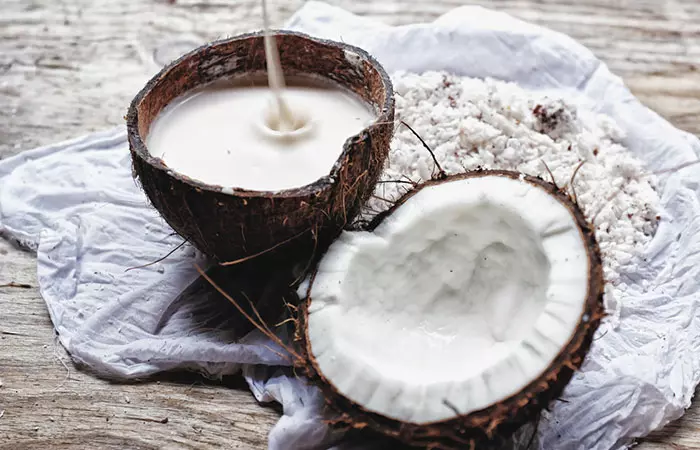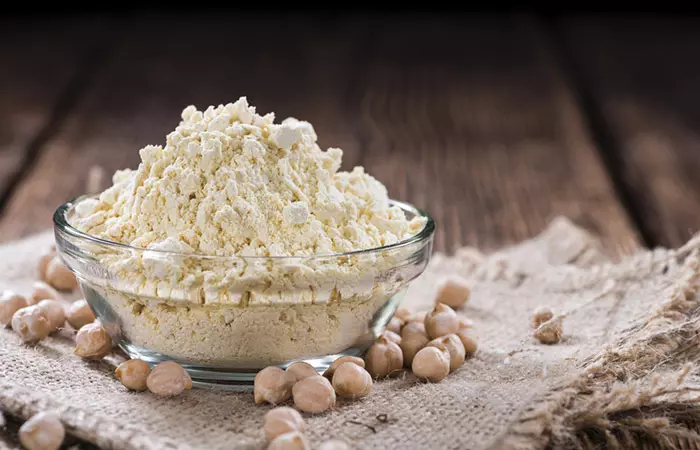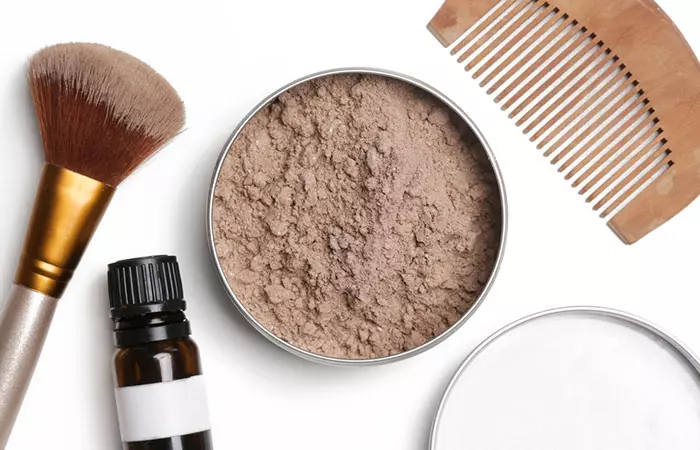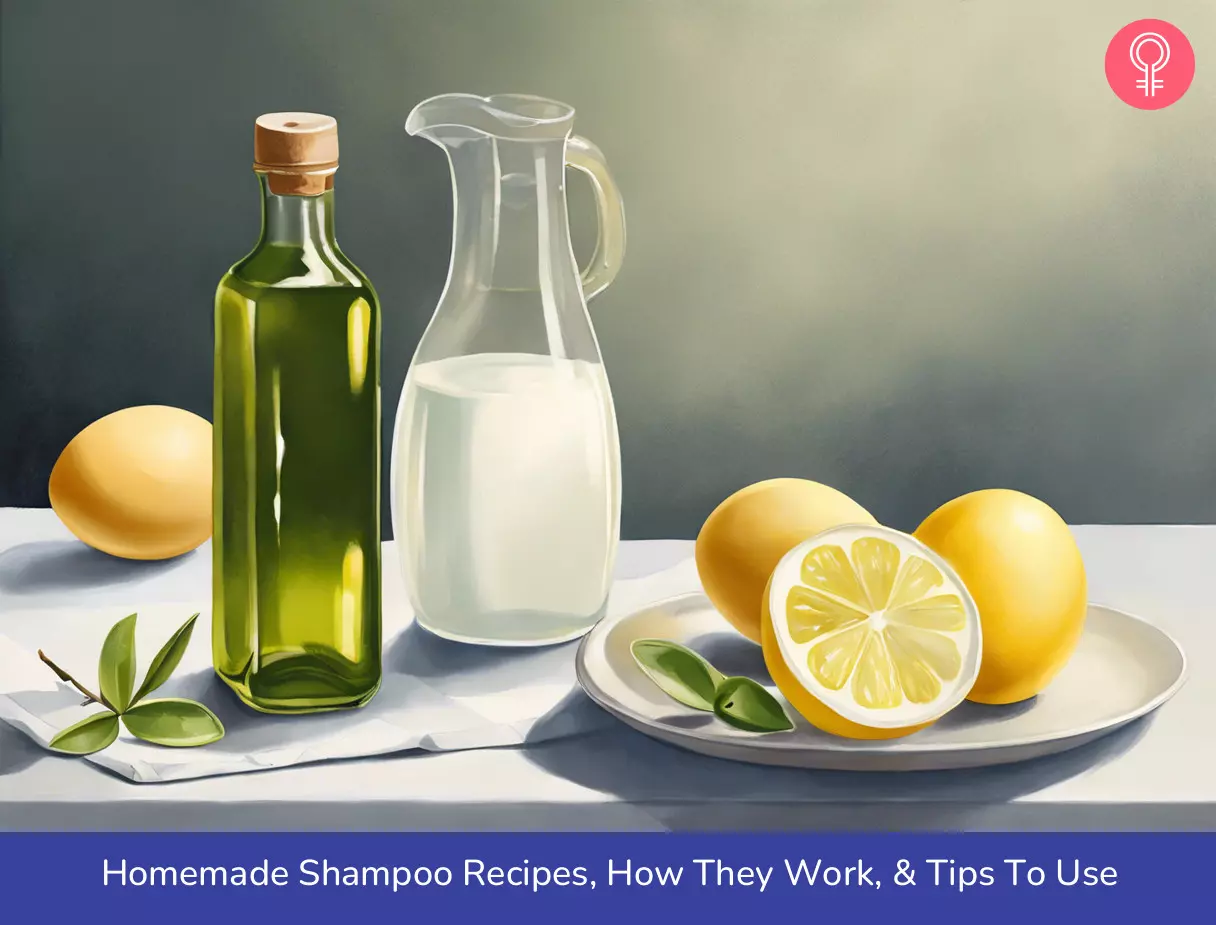Why Choose Homemade Shampoo?
Understanding and learning about different types of shampoo is essential for choosing the right one for your hair. Homemade shampoos have certain advantages over commercially available products: Excited to try homemade shampoos? Check out some easy recipes in the next section.
How To Make Homemade Shampoos
1. Egg Shampoo Recipe For Oily Hair
You Will Need
2 whole eggs 3 tablespoons of baking soda 2 teaspoons of olive oil 1 tablespoon of apple cider vinegar 1 tablespoon lemon juice
Process
2. Avocado Shampoo Recipe For Dry, Damaged Hair
You Will Need
1 ripe avocado 2 teaspoons of baking soda ¼ cup of water
Process
3. Apple Cider Vinegar Shampoo Recipe For Itchy Scalp
You Will Need
¼ cup of liquid castile soap 2 tablespoons of apple cider vinegar 10-15 drops of tea tree essential oil ¼ cup of water
Process
4. Basic Homemade Shampoo Recipe For Sensitive Scalp
You Will Need
½ cup of castile soap ½ cup of water ½ teaspoon of vegetable oil or glycerin
Process Note: Homemade coconut oil shampoo is a fantastic option for those seeking a natural way to moisturize and strengthen their hair.
5. Coconut Milk Shampoo Recipe For Thick, Long Hair
You Will Need
¼ cup of coconut milk (homemade or canned) ¼ cup of castile soap 20 drops of essential oils (peppermint, lavender, rosemary) ½ teaspoon of olive or almond oil
Process
6. Oats Shampoo Recipe For Dull, Lifeless Hair
You Will Need
½ cup of whole oats 2 teaspoons of baking soda 1 teaspoon of cornstarch ¼ cup of water
Process
7. Chickpea Shampoo Recipe For Strong, Shiny Hair
You Will Need
2 tablespoons of chickpea flour 1 teaspoon of aloe vera gel 1 teaspoon of honey ½ teaspoon of fenugreek powder ¼ cup of water
Process
8. Dry Shampoo Recipe
You Will Need
1 tablespoon of cornstarch 1 tablespoon of cocoa powder (optional)
Process
9. Shea Butter Shampoo Recipe For Smooth Hair
You Will Need
¼ cup of liquid castile soap 2 tablespoons of shea butter 1 tablespoon of honey 1 teaspoon of jojoba oil 10-15 drops of your favorite essential oil (lavender, rosemary, etc.)
Process
- Melt the shea butter in a microwave-safe bowl for about 20-30 seconds until it turns into liquid. 2. Mix the liquid castile soap, honey, jojoba oil, and essential oil in a separate container. 3. Slowly add the melted shea butter to the mixture. Stir well to combine all the ingredients. 4. Pour the shampoo into an empty shampoo bottle. 5. Use by applying a small amount to wet hair. Lather and rinse thoroughly. If you are wondering how these simple ingredients work for your hair, find out in the next section.
How Do The Ingredients In The Homemade Shampoos Work?
Here are a few tips you can follow when using a DIY shampoo.
Tips To Use Your Homemade Shampoo
What is a natural shampoo? Natural shampoos are shampoos made with only natural, organic ingredients as opposed to conventional shampoos that contain synthetic ingredients. Can natural shampoo damage hair? Natural shampoos are claimed to not damage the hair or alter its condition in any way. However, to avoid scalp irritation, be careful to check for any ingredients that you might be allergic to. What is homemade shampoo, and how does it differ from commercial shampoos? Homemade shampoos constitute natural ingredients and are gentle on the skin, whereas commercial shampoos contain synthetic ingredients. Are homemade shampoos suitable for all hair types? Yes, homemade shampoos are suitable for all hair types, but it is important to choose ingredients that match your hair type and requirements. Are there any potential risks or drawbacks to using homemade shampoo? In general, homemade shampoos are safe to use. But, it is best to take a patch test before adding a new product to your hair care routine. Can homemade shampoo be stored for long periods, or is it best to make small batches? It’s better to make homemade shampoos in small batches and use them within a week. Are there any natural preservatives or additives that can be used in homemade shampoo to extend its shelf life? Adding citric acid or vitamin E oil and other essential oils such as tea tree and rosemary oil can extend homemade shampoo’s shelf life. Will using homemade shampoo affect color-treated or chemically-treated hair? Yes, homemade shampoo can affect color-treated or chemically-treated hair, so choose ingredients accordingly. Can homemade shampoo be used on children or individuals with sensitive scalps? It’s better to patch test before using homemade shampoo on children or individuals with sensitive scalps to avoid allergens and irritants.
Illustration: Homemade Shampoo Recipes How They Work & Tips To Use
Learn how to make your own natural shampoo with simple household ingredients. Get the perfect and healthy hair you have always wanted by clicking on this video.
